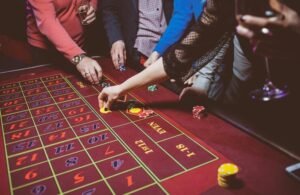Statistics versus Emotion in Betting

This is a topic that would easily deserve a book, but for now, this article will only serve as a brief insight.
Poker World
Let’s start with the world of poker. The last 20 years saw an explosion of math being used in the education of ‘new school’ players. Software tools are now available to automatically calculate the probabilities of any number of given outcomes. You see this on regular poker TV where individual hand probabilities are commonly shown. This can lead then to mathematical answers to questions such as should I fold on Jack/Nine?
In the older days, some players would be good enough to automatically calculate the approximate odds in their own minds. Many did not, yet they could become very successful players. They were very adept at the human side of the game, reading the other players and their styles of play. All the math tools and abilities in the world will count for little if you cannot live up to the psychological part of the game. Your opponent challenges you to your full bankroll. This is a positive bet for you according to your math model. However, there is still a say 45% chance he will win versus your 55%. Do you risk your whole bankroll on that option? This is where the oldest emotions in the markets come into play-fear and greed. Playing these emotions properly is more important than any math model.
Sports Betting world
Moving to the world of sports betting, there is less human emotion at play than in Poker. Yet, the world of sports betting is also increasingly becoming a slave to statistical modelling and other math techniques. Oftentimes, some of these models lie behind the sportsbook lines, especially the initial line.
Yet, the public overwhelmingly bet with their emotions, or heart over mind. So, the opening statistical lines then move by the ‘emotional’ betting of the public. So, which is the correct line, the opening ‘statistical model’ line or the ‘closing line’, driven largely by the public and their emotions?
The answer of course is that the best strategies are a mixture. If you don’t have some level of statistical input (whether from models or intuitive knowledge-e.g. I have watched enough basketball to know that the Celtics won’t lose this match at home), you will make foolish negative EV bets. On the other hand, no model can account for the emotional aspects behind a game as well as the human brain can. Therefore, a strategy that relies purely on math is also unlikely to be profitable overall. This is unless a clear and obvious gap exists in some thin non-mainstream market.
In conclusion, the best strategy is to combine the input from whatever math/models are relevant to the game with your own emotional insight to the markets/games to come up with what for you are the most likely positive EV bets. Do not rely exclusively on one, unless you have an internally brilliant mathematical mind, in which case you can allow your emotions to balance those conclusions.



